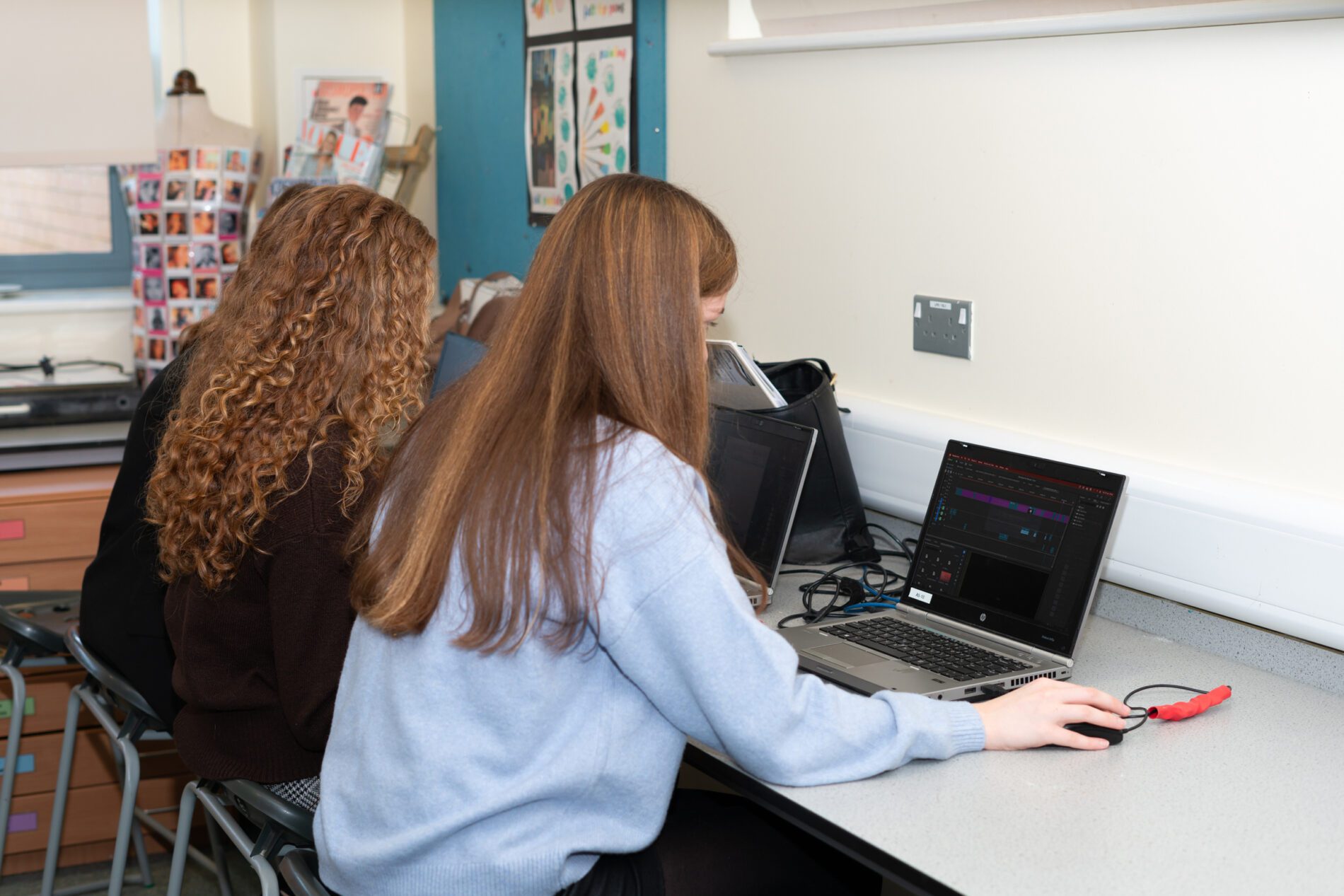Subject Leader: Mr K Kyle – kkyle@knoleacademy.org
Exam Board: International Baccalaureate
Entry Requirements
Minimum of 5 9-5 grades in GCSE examinations including English and Maths.
Intent
Film Studies allows students insight into new worlds. Films are windows into contexts across space and time, and analysing films will allow you to think critically, create empathy, and reflect on yourself and the world. Studying Film improves creative thinking, teamwork, and communication.

Implementation
To achieve these objectives, we will implement the curriculum through the following strategies:
- Project-Based Learning: Engage students in hands-on projects that require the application of filmmaking and digital tools. They also learn critical thinking skills to solve real-world problems (e.g. filming in public and making sure health and safety rules are maintained via risk assessments).
- Technological Integration: Utilise state-of-the-art technology and digital platforms to enhance learning experiences and provide practical skills. Students will often use both digital cameras and Adobe software such as Premiere Pro to do their post-production work on (for instance, editing and post-production sound).
- Collaborative Learning: Encourage collaboration through group projects and wider cohort engagement. Many non-film students star in the student films. All the projects require collaborative learning and engagement, because to make a film each student needs to take on a specific role which c0omplements the other roles taken by their team mates (e.g. Director, editor, Director of Photography etc.).
- Ethical Frameworks: Integrate discussions and activities around digital ethics, privacy, and security to promote responsible digital citizenship. The IB Film course is very strict about copyright, representations of violence in student films and a complete ban on any representations of drugs or any other anti-social behaviour.

Impact
The heart of Film Studies is analysis, reflection, and imaginative synthesis. Film Studies aims to promote your understanding of Film as a form, improve your knowledge of the history of film-making and give you practice in the practical and technical skills of film production.
The skills developed in Film Studies are applicable across any career path: effective communication, teamwork, problem solving, critical analysis, and reflection.
Course Outline
This course takes two years to fully examine three strands of Film Studies:
- Textual analysis: the detailed study of film sequences
- Film theory and history: the study of film and film-making traditions from more than one country
- Creative process (film production): techniques and organisation of production
- Collaborative producing: filmmaking and experience working in core production teams (higher level only)
Examination Information
Exam Board: International Baccalaureate
Qualification: Film Studies Diploma
This course is entirely assessed through coursework, both externally and internally assessed. This will consist of an independent study of a minimum of two films, an oral presentation analysing a continuous film extract from a prescribed film and the production of a film and trailer with accompanying portfolio.
- Textual analysis: 30% (SL) 20% (HL)
- Comparative study: 30% (SL) 20% (HL)
- Film portfolio: 40% (SL) 25% (HL)
- Collaborative film project (HL only – 35%)
Future Courses and Possible Careers
Broadcast Engineer, Location Manager, Marketing, Journalism, Filmmakers and more.

